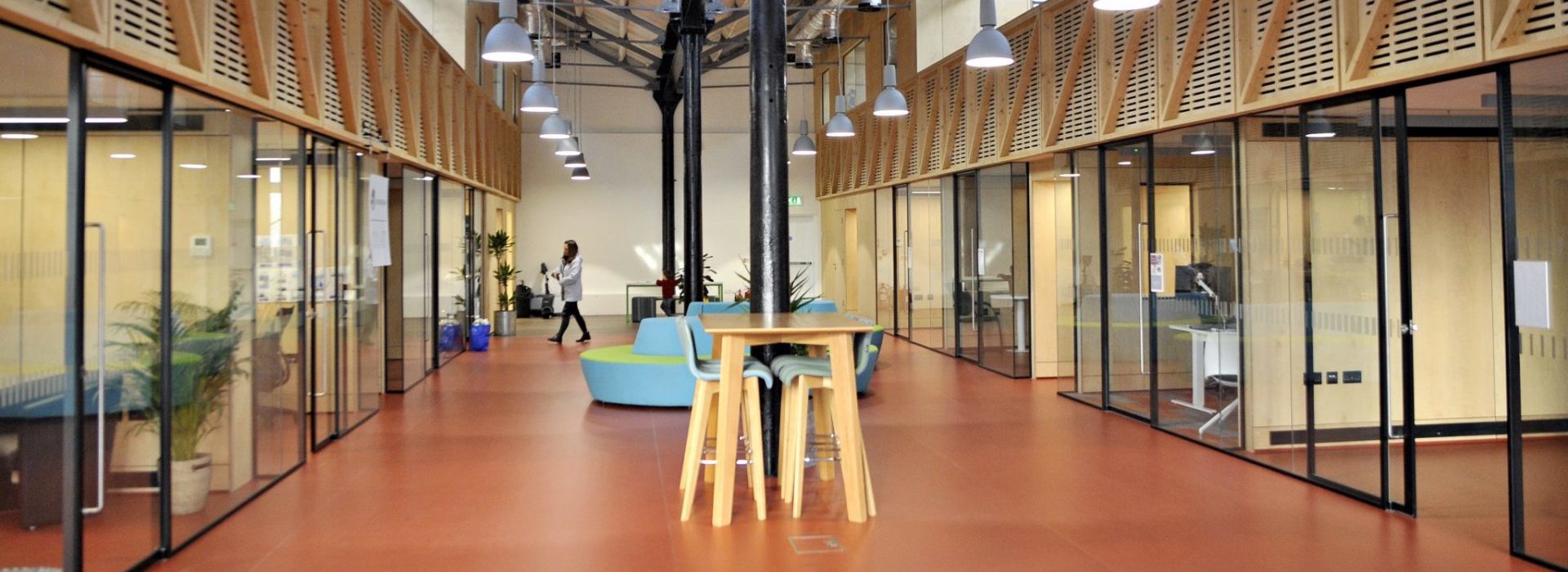
iCAST – Accelerating the UK’s zero carbon agenda
iCAST – Accelerating the UK’s zero carbon agenda
The University of Bath’s Centre for Sustainable and Circular Technologies (CSCT) launches a major new innovation hub, bringing together core partners in academia and industry to accelerate the UK’s transition to net-zero carbon emissions.
In 2020, the UK Government set an ambitious target to achieve net-zero carbon emissions by 2050 and create up to 250,000 green jobs in the process. However, there is an innovation gap that needs to be filled for these green goals to be met.
The new Innovation Centre for Applied Sustainable Technologies (iCAST) is offering a solution as an R&D and collaboration hub for companies working on clean growth technologies. It will focus on translating sustainable chemical technology research into commercial products to tackle the global challenges of climate emergency, sustainable development and plastic pollution.
“This is truly an exciting collaboration and couldn’t come at a more crucial time,” says Paddy Bradley, CEO of Swindon and Wiltshire Local Enterprise Partnership. “iCAST is a significant step forward in reaching the goal of not only changing the way the world thinks but also how we behave to prevent further damage to our natural environment.
“We need business, academia and technology to harmonise as we advance towards a genuinely circular economy and iCAST is a partnership opportunity allowing us to meet today’s challenges.”
Green innovation through iCAST
The £17 million facility with a hub in Swindon is backed by the Research England Development Fund, an initiative from UKRI that drives innovation in research and knowledge exchange in higher education.
iCAST brings together industry with expertise at the Universities of Bath and Oxford, the High Value Manufacturing Catapult’s Sustainability Partnership (National Composites Centre and Centre for Process Innovation), innovation experts at SETsquared, the Swindon and Wiltshire Local Enterprise Partnership (SWLEP) and investors.
Its core job is to provide agile and flexible support for businesses to scale up new sustainable technologies and bring them to market. Critically, it will deliver proof-of-principle, scale-up and feasibility studies to accelerate how soon cutting-edge sustainable concepts will mature so that focus can be placed on those with the largest potential impacts.
Bridging the innovation gap
To meet the challenges, set by the Chancellor’s 10-point plan for the Green Industrial Revolution, there needs to be a step-change in our national industrial strategy for translating sustainable chemical technologies into clean growth.
The UK is one of the world’s top producers of chemicals and pharmaceuticals, which contribute £17.8 billion in GVA to the economy each year. The sector also directly employs more than 140,000 highly skilled people and supports the jobs of around 500,000 more, as well as investing in world-class research in the sector. However, until now, industry and research have been disconnected.
As Professor Matthew Davidson, Director of iCAST and CSCT and Whorrod Professor of Sustainable Circular Technologies at the University of Bath, explains: “There is currently a translation gap between publicly funded investment into fundamental research and its deployment by UK companies. iCAST will address this gap by enabling companies to easily invest in R&D in a collaborative and agile environment and by providing specialist business support for innovations to be deployed commercially.
“By partnering companies with the critical mass of research expertise at Bath and at Oxford, iCAST will accelerate scale-up of new technologies, deliver economic impact, and build supply chains, jobs and growth in the UK.”
Delivering on net-zero
Work to establish iCAST is now well underway, and by September 2021, it will be open for business as a ‘one-stop shop’ for delivering net-zero carbon emissions with the resources, facilities and know-how to accelerate the UK’s transition from a linear model to a circular economy.
It will deliver this in a three-step process to accelerate innovation from proof of principle towards market readiness. First, it will leverage existing public investment in research at Bath, Oxford and the HVM Catapult in areas identified as having the greatest potential. Researchers and businesses will then be assisted in discovering and prioritising the highest value innovations. And finally, iCAST resources will be deployed in joint industry projects to develop and accelerate the best new commercial products, services and processes. Access to investment and business expertise via SETsquared will further enhance commercial readiness levels.
iCAST’s focus will be on research and innovation in four core programmes: bio-based feedstocks, sustainable chemical production systems, sustainable engineering materials and circular plastics.
Close collaboration with innovation start-ups targeting these new technologies means that even if some technologies do not make the final cut, expertise and teams can be easily redeployed to work on other projects with a shared mission.
A strategic location
While the research home of iCAST will be at the Universities of Bath and Oxford, its innovation space will be located in Swindon’s iconic Carriage Works as part of the Innovation Campus for the Circular Economy (ICCE). This off-campus location provides a dedicated place where iCAST’s partners can work together on the Centre’s mission. Swindon itself provides national and international connectivity for iCAST businesses in the heart of the region’s WesternGateway Powerhouse innovation system, as well as close proximity to the lab facilities in Bath and Oxford.
The partnership already has more than 45 member companies ranging from spinouts, high growth SMEs and multinational corporates including Unilever, Wessex Water, Total Corbion PLA, Naturbeads and Recycling Technologies.
This article was originally published in an Open Access Government publication. Download the PDF.




